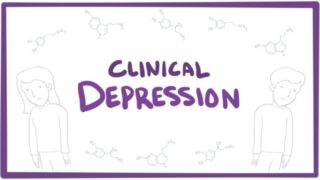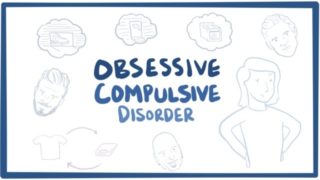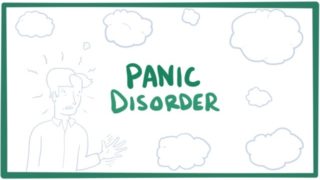Borderline Personality Disorder – mental health Kati Morton Self-Harm, Eating Disorder & BPD
Borderline Personality Disorder, Self-Harm and Eating Disorders. In this video I talk about their relationship. Many of the symptoms of BPD lead us to acting out in SH or ED. Many of you will find that you can associate with some of these symptoms, but remember that you must be properly diagnosed by a medical professional and exhibit at least 5 of the symptoms of Borderline Personality Disorder (BPD). If you have been diagnosed with BPD the best thing for you to do is to purchase a Dialectical Behavior Therapy workbook (I recommend a good one on my website in the Amazon books section at the bottom of all my pages) and also I recommend that you find and join a Dialectical Behavior Therapy (DBP) group in your area.
On a different topic.. I am looking for your support. Youtube has a program called "On The Rise" where you can help me grow my channel... If you have 1 minute please help me out by voting for me here:
https://docs.google.com/forms/d/1m3eL_fbdC3A_897tFgP142ceIhwdJiRkMS82Ey9gAyk/viewform
Thanks!
Kati
Kati Morton, MFTI
Youtube: https://www.youtube.com/katimorton
Subscribe to my channel:
https://www.youtube.com/subscription_center?add_user=katimorton
Playlist
Complete "Healthy Mind, Healthy Body!":
https://www.youtube.com/playlist?list=PL_loxoCVsWqzvKjM9HCbL1sWxsWJSRLNK
Types of Eating Disorders:
https://www.youtube.com/playlist?list=PL_loxoCVsWqz_CKEMjHx8o-umO1TzzaDr
Eating Disorders Explained:
https://www.youtube.com/playlist?list=PLAB41960D35357E06
Dietitian series:
https://www.youtube.com/playlist?list=PL_loxoCVsWqx8b27IXCAQNcpfMtcwmiXD
Self-Harm:
https://www.youtube.com/playlist?list=PL_loxoCVsWqxUuzhjHu7Ra_UyKd4tEde2
Live Broadcasts:
httsp://www.youtube.com/playlist?list=PL_loxoCVsWqxDKOXuVu3Uho-409fNOEAl
Kind words from you:
https://www.youtube.com/playlist?list=PL_loxoCVsWqxJnRXSOBkq1bKm6S8vUE_M
Help Techniques:
https://www.youtube.com/playlist?list=PL14F50E070238DF4E
My other sites:
Website: https://www.katimorton.com
Twitter: https://www.twitter.com/katimorton
Tumblr: https://www.katimorton.tumblr.com
Facebook: https://www.facebook.com/katimorton1
Pinterest: https://www.pinterest.com/katimorton1
Borderline personality disorder
from: http://www.ncbi.nlm.nih.gov/pubmedhealth/PMH0001931/
Borderline personality disorder is a condition in which people have long-term patterns of unstable or turbulent emotions, such as feelings about themselves and others.
These inner experiences often cause them to take impulsive actions and have chaotic relationships.
Causes, incidence, and risk factors
The causes of borderline personality disorder (BPD) are unknown. Genetic, family, and social factors are thought to play roles.
Risk factors for BPD include:
Abandonment in childhood or adolescence
Disrupted family life
Poor communication in the family
Sexual abuse
This personality disorder tends to occur more often in women and among hospitalized psychiatric patients.
Symptoms
People with BPD are often uncertain about their identity. As a result, their interests and values may change rapidly.
People with BPD also tend to see things in terms of extremes, such as either all good or all bad. Their views of other people may change quickly. A person who is looked up to one day may be looked down on the next day. These suddenly shifting feelings often lead to intense and unstable relationships.
Other symptoms of BPD include:
Fear of being abandoned
Feelings of emptiness and boredom
Frequent displays of inappropriate anger
Impulsiveness with money, substance abuse, sexual relationships, binge eating, or shoplifting
Intolerance of being alone
Repeated crises and acts of self-injury, such as wrist cutting or overdosing
Signs and tests
Like other personality disorders, BPD is diagnosed based on a psychological evaluation and the history and severity of the symptoms.
Treatment
Many types of individual talk therapy, such as dialectical behavioral therapy (DBT), can successfully treat BPD. In addition, group therapy can help change self-destructive behaviors.
In some cases, medications can help level mood swings and treat depression or other disorders that may occur with this condition.
Expectations (prognosis)
The outlook depends on how severe the condition is and whether the person is willing to accept help. With long-term talk therapy, the person will often gradually improve.
Help us caption & translate this video!
http://amara.org/v/BvIC/
-~-~~-~~~-~~-~-
Please watch: "Mitchell Davis talks Agoraphobia, OCD & Panic Attacks | On The Couch Ep. 3 with Kati Morton"
https://www.youtube.com/watch?v=ra8gUzMUuXY
-~-~~-~~~-~~-~- annataughtyou katie morton mental illness
Borderline Personality Disorder – mental health Kati Morton Self-Harm, Eating Disorder & BPD
Other Videos You Might Like:
Subscribe
Login
3.3K Comments
Newest




